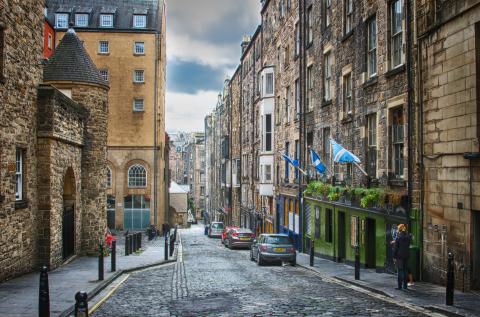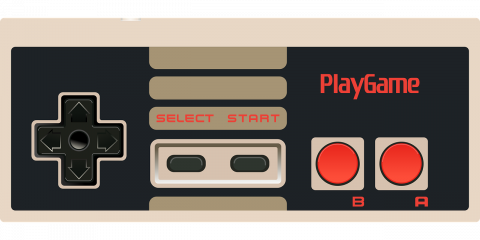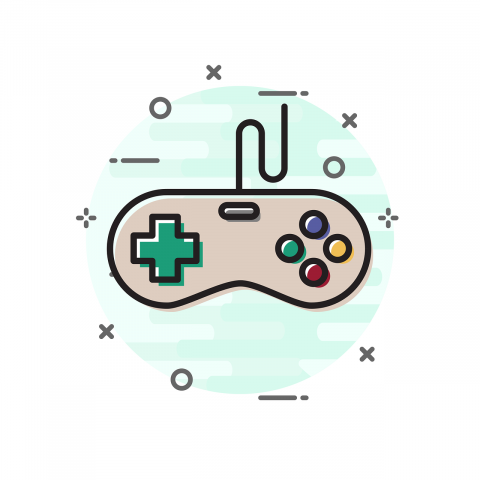Code your own game: A challenge for Primary Schools
Be a part of the rAn community and play your part in developing mini-games for our main serious game about natural disasters. Teachers and their classes are invited to discuss about this, form their teams, use the famous and widely acclaimed Scratch language, imagine, design, develop and share with others a complete mini-game regarding how to prepare themselves or prevent a natural disaster (Fire, Earthquake, Flood, Storm). Don’t miss the chance to see your game integrated in the main rAn game and used by thousands of children all over Europe and why not worldwide! Students and schools will have an opportunity to win prizes for Best Overall, Best Technical, and Best Artistic Design and digital badges for participating!
What is rAn actually?
The rAn is a project funded by the Erasmus+ framework. It targets the European education and training community as a whole by fostering the enhancement of the proposed curriculum and tools. In primary education, for instance, a core concern is when and how to introduce such issues. This decision is important in order not to frighten children and young people, but to empower them to understand, critically engage with and tackle environmental change and natural phenomena. Educators at all levels will also need support and training to deliver quality education about complex, climate related topics in ways which are both relevant to local environmental, social and political contexts, and which meet wider educational targets (e.g. literacy, numeracy, citizenship).
The rAn project mainly aims to develop:
- A “natural disasters awareness kit” and a serious game that promote awareness of young people in the field of natural disasters and measures, tools and practices for either predicting/preventing or facing hazardous situations.
- Learning methodologies and best practices that promote "hands-on" experiential learning scenarios, critical thinking and problem-based learning. Such methods draw their content from real- world practices and needs, promote knowledge abstraction, encourage the deployment of state-of-the-art technological tools and methods. They tend to foster the creation of concrete representations for a plethora of science concepts (coding, , mathematics, mechanics etc.) through active role playing.
- Learning scenarios and puzzles that encourage either Computational Thinking (Coding, IoT) principles and processes as well as "smart", modern and responsible solutions for the aforementioned problem(s) in a digital environment
An active community of practice for teachers that will be interested in disseminating the aforementioned concepts, tools and practices among stakeholders that come from the field of education.
What is Scratch?
Scratch is a block-based visual programming language and online community. It was developed by the MIT Media Lab, has been translated into 70+ languages, and it can be used to help introduce young students to coding. It can also be used to create some very amazing and complex projects. Please find all the useful info, tips and tricks about how to deploy Scratch in your classroom on the following wiki: https://en.scratch-wiki.info/wiki/Scratch_Wiki_Home
The process of creating and sharing a game with us for the purposes of the rAn contest is quite simple. Just take a look and don’t hesitate to click on the suggested steps:

You can register here
Find information about sharing your game with the scratch community here.
USEFUL TIP: The rAn consortium will offer a free of charge webinar for all the interested teachers that have never worked with Scratch or would like to get to know better its affordances. This will happen on the 10th of February 2021 at 4pm CET and will be fully supported by the University of Thessaly and experienced tutors. The webinar will be held in English and a certification of participation will also be issued. You can register here.
Competition rules
- Each submission must feature one of the four Natural disasters (fires, storms, earthquakes and floods) as the main theme.
- Each game should be created with Scratch about awareness, prevention and preparedness on -at least- one of the four natural disasters that the project deals with.
- Needless to say, that teachers are asked to have a supportive role on the whole design and development of the game. Pupils themselves (in small groups) should be the main developers.
- The games could be one-screen only, however we encourage the creators to develop more extensive scenarios with a maximum of 10 screens each. The scenarios should be catchy and simple to understand and the game should not be endless. There should be a main objective which, once fulfilled, the game should come to an end. The plot is necessary to end successfully or not at some point. The element of a countdown timer until the ending, would be a handy feature.
- The competition is open to students in primary schools all over Europe and why not worldwide.
- The project must be created using Scratch, which can be downloaded for free at http://scratch.mit.edu.
- Entries from a school can only be accepted if the school has been registered by a teacher using the official registration form that you can find here.
- A classroom can submit as many games as kids and their teacher like. Numerous entries from the same classroom should be about games created from teams of no more than 4 students each. This is because we want the teams to work on a collaborative basis and encourage interesting classroom projects and design thinking processes.
- Entries can only be accepted if they have been uploaded to a school’s gallery, created by a teacher, on the Scratch website at http://scratch.mit.edu
- Entries must be original works created by the team submitting the entry. “Remixed” games will not be accepted.
- If your entry incorporates music, sound, text or images, you must own the rights to use that material otherwise please make use of royalty-free content and please declare this in the submission form.
- The competition organizers reserve the right to disqualify any entry based on inappropriate or copyrighted content and any entries which do not adhere to the competition rules and guidelines.
- When an entry is submitted, permission is granted to the organizers of the competition to make unrestricted use of the entry in the future for publicity or educational purposes in the context of the rAn project. In such use, the organizers will make sure that the author/school is clearly acknowledged.
- Documentation of the design and development of each game is highly recommended. This can be done in various ways but a short report (2-5 pages at most) on the various stages of development through photos, children’s comments and teachers’ feedback on the whole experience will be a big plus for the final outcome.
- Teachers are encouraged to submit games along with a relevant learning sheet regarding natural disasters awareness (written by the teachers, on learning sheet per game). The entry will gain extra bonus and the learning sheet will also be included in the final manual of the game with a relevant reference about each creator. Find more information about the learning sheets here.
- Teachers and students will need to answer a short on-line questionnaire about their overall experience prior to and after developing the game. The questionnaire will be published on the project’s website (https://ranproject.eu/)
Prizes
The purpose of the contest is not to promote competitiveness but only to engage teachers and pupils in the process of getting informed on prevention and preparedness about natural disasters. Apart from the actively generated knowledge and awareness which is above all, the prize for each participation will be a digital badge of rAn creator for each pupil and teacher as well as for their school. In addition, all the submitted games will be published on-line on rAn’s website regardless their final score and will be available even after the end of the project. The games with the higher evaluation, will be integrated in the final rAn game and will be available to everyone that will play it. In addition, the names of the creators (pupils, teachers, schools) will be included in the credits of the game. In addition, official certificates of participation and excellence will be issued by the University of Thessaly (project partner, Higher education institute in Greece) and will be sent to teachers and schools via mail. Last but not least the best games will be presented in the final conference of the project (towards its end in September 2021). Teachers and pupils will be invited to present their experience to the general public and help promote good practices regarding raising awareness about natural disasters in Primary education.
Judging criteria
The judging committee consists of University professors, experienced teachers, policy makers and software developers from 4 different countries, namely Greece, Portugal, Spain, UK. None of them is somehow affiliated or connected with any school or organization participating in the contest. A complete list of judges will be published soon on the contest’s website.
Each entry will be reviewed by a panel of judges. The judges will ground the judging process in a 1-5 grading scale. The committee will award a maximum of points for each of the following:
The maximum points a game can earn are 40/40.
The decisions of the judging panel are final and no correspondence will be entered into.
- Originality and creativity (Plagiarized entry will have deduction of marks) - up to 5 points
- Stimulating/Engaging (Fun to use) - up to 5 points
- Functionality and technical quality (Projects must make clever use of Scratch features. Games should be at least playable with no technical flaws and bugs)- up to 5 points
- Faithfulness to rAn’s specific purposes- up to 5 points
- Overall documentation and validation of each project - up to 5 points
- Ease of usage (Casual concept – no lengthy instructions needed)- up to 5points
- Engaging visuals - up to 5 points
- Educational added value and sustainability (Games that come along with a concrete learning sheet and accompanying activities, clearly explained objectives and coherent alignment and conformity with national curricula, will be considered of higher educational value. This means that such a game could be considered as a standalone educational tool integrated in a coherent educational scenario regarding awareness of children about natural disasters’ prevention and preparedness)
Contact us
Teachers are encouraged to follow the project’s website for further information and contact with the people behind the contest. All the games will be submitted through an automated on-line form that can be found here.
Join the rAn Teachers Community Facebook group to interact with teachers all over Europe.



